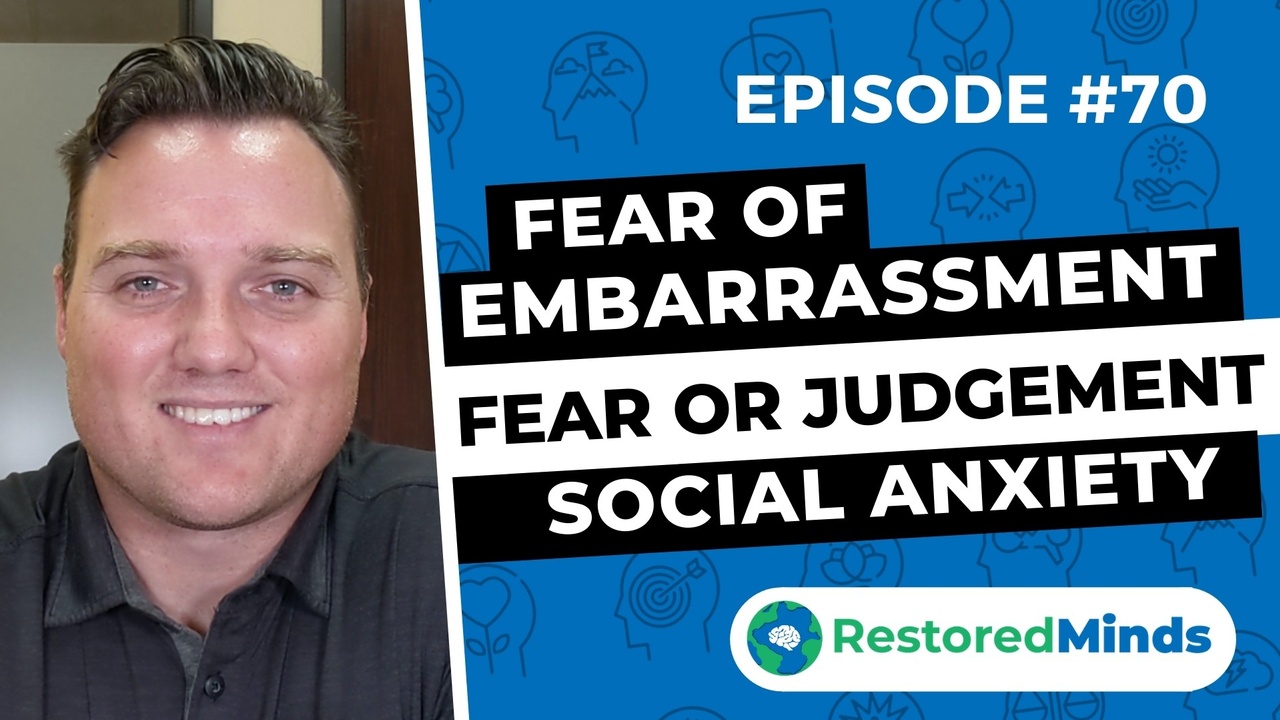Fear of Embarrassment - Fear of Judgement - Social Anxiety
Feb 16, 2021
Overcoming the Fear of Embarrassment: Tips to Conquer Social Anxiety
Introduction
Hey there! Welcome to Restored Minds. We’re diving into a topic that affects many—the fear of embarrassment. This fear can be paralyzing and often falls under the umbrella of social anxiety, leaving us worrying about what others think. This blog aims to unpack the fear of embarrassment, its impacts, and how to manage it effectively.
What is the Fear of Embarrassment?
First, let’s define it. The fear of embarrassment revolves around the worry that we'll make a mistake and be judged by others. This fear is tied closely to social anxiety and often manifests in various life scenarios—whether it's at work, in social gatherings, or even while sending an email.
Why Do We Fear Embarrassment?
We fear embarrassment because our minds tend to predict negative outcomes. We've all had moments where we felt embarrassed and naturally want to avoid such experiences in the future. This fear trickles into our daily activities, making us overly cautious and, sometimes, compulsive.
Understanding Social Anxiety
Fear of embarrassment can be classified under social anxiety. Social anxiety makes us hyper-aware of what others may be thinking about us. "What if they don't like me?" or "What if they think I look funny?" are common concerns. This worry can extend to our professional lives as well, where the fear of making mistakes can hinder productivity.
The Paradox of Preventing Embarrassment
One of the biggest issues with the fear of embarrassment is that we end up spending enormous amounts of energy trying to prevent it. Whether it's double-checking emails or avoiding certain activities, our lives become limited. In turn, this can lead to a cycle of stress and anxiety, making our lives smaller and more confined.
How to Overcome the Fear of Embarrassment
-
Challenge Your Fears Head-On:
-
Put yourself in situations where you might get embarrassed. For example, if you're afraid of public speaking, volunteer to give a speech. Test the waters and see if the negative outcomes you anticipate come to fruition.
-
-
Accept Imperfection:
-
Leave a period out in an email and send it. See if the repercussions are as severe as you imagined. You’ll often find that people don’t even notice minor mistakes.
-
-
Understand the Reality:
-
Realize that worrying is a form of suffering. It's better to deal with actual embarrassment than to live in constant fear of it. This approach can help you reclaim your energy and focus it on more productive tasks.
-
-
Proactive Steps:
-
Engage in cognitive behavioral techniques to manage anxiety. Visit resources like
where you can find webinars, community support, and the "Taking Back Control" program aimed at helping you manage social anxiety and fear of embarrassment.
-
Final Thoughts
Dealing with the fear of embarrassment is about taking proactive steps and challenging the fear itself rather than letting it control your life. By confronting potential embarrassment, you can start living a fuller, more liberating life.


